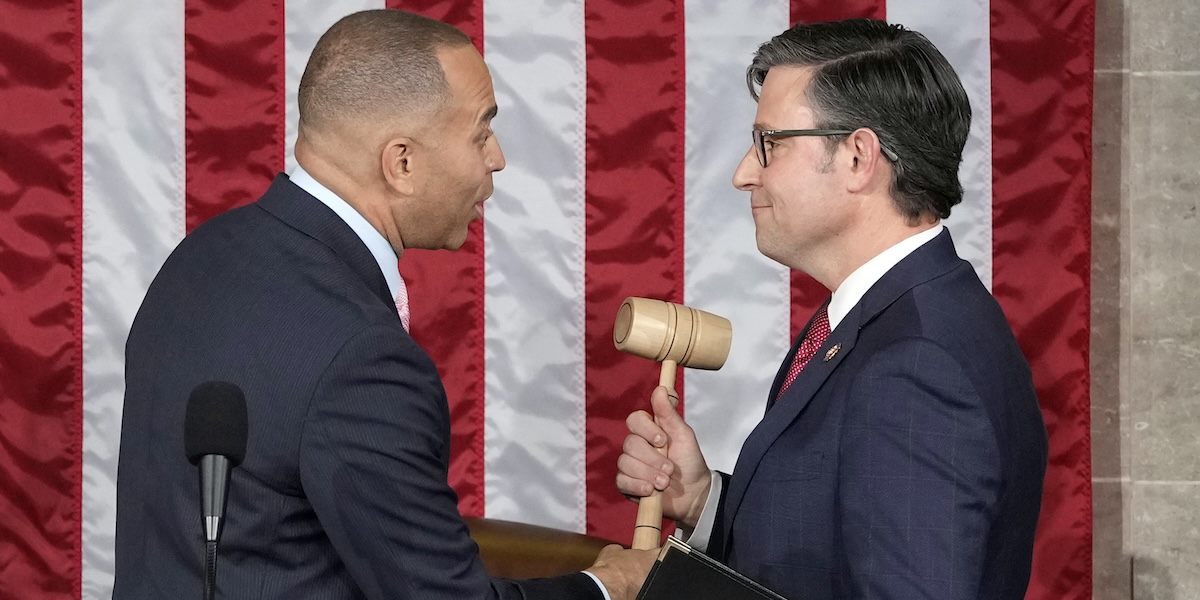For over 200 years, Congress has stood as a deliberative body, its members bound by tradition and constitutional duty to assemble in person to debate and vote on the laws that shape our nation.
That legacy now hangs in the balance.
Rep. Anna Paulina Luna (R-Fla.) has sparked a bitter public feud with some in her own party as she pushes to allow some House members to vote by proxy.
Read also:Freaky Quotes Funny For Instagram
It’s thrust this critical question into the spotlight: Will Congress uphold its foundational role, or erode it under the guise of modern convenience for new parents?
Luna, a sitting member of Congress when she welcomed a child in 2023, partnered with Rep. Brittany Pettersen (D-Colo.), another new mother, to advocate for a rule change allowing new House parents to delegate their votes to colleagues for 12 weeks postpartum.
On its surface, the proposal seems reasonable — until we examine its roots.
This is not merely about supporting parenthood; it’s an attempt to resurrect a COVID-era experiment, introduced by then-Speaker Nancy Pelosi (D-Calif.) in May 2020 and terminated by House Republicans under Speaker Kevin McCarthy (R-Calif.) in 2023.
What began as a temporary measure morphed into a tool of convenience, threatening the very essence of legislative accountability.
For more than two centuries, through wars, crises and even the Capitol’s burning in 1814, the House convened in person.
Read also:Cute Happy Sunday Wishes
Article I, Section 4, Clause 2 of the Constitution mandates this: “The Congress shall assemble at least once in every Year,” the Founders agreed, envisioning a physical gathering to fulfill its duties.
The pandemic disrupted this norm, ushering in remote voting that peaked in 2021, with nearly 10% of House tallies cast by proxy that year and 97.8% participation among representatives.
Critics, including then-Minority Leader McCarthy, condemned the practice as unconstitutional. He ended proxy voting as soon as he took the speakership — a decision that must endure.
Proxy voting’s pandemic experiment revealed its flaws.
Far from being confined to the “public health emergency,” it ballooned into a catchall excuse for lawmakers who cited COVID but instead held campaign events, went on vacation or simply sought to avoid travel.
Votes were cast from conferences, cars and even from a celebrity wedding in France, stark departures from the measure’s intent.
If reinstated for new parenthood, what prevents its creep into other categories — illness, family events or inclement weather?
Congress already meets sparingly: The House convened just 117 days in 2024, and the Senate 154.
Expanding remote options will further dilute a duty that demands presence, not mere participation.
History offers compelling counterpoints.
When Sen. Tammy Duckworth (D-Ill.) in 2018 became the first sitting senator to give birth, she brought newborn Maile to the Senate floor for votes — no proxy needed.
Rep. Jaime Herrera Beutler (R-Wash.) balanced her House service with raising three children born during her congressional tenure.
These women, like Luna and Pettersen themselves, demonstrate how congressional service and parenthood can co-exist without jeopardizing the institution’s integrity.
True, these young mothers faced missed votes and hard choices when they decided to serve.
But their examples bolster the case against proxy voting, proving that resilience, not accommodation, has long sustained legislative duty.
Reinstating proxy voting for new parents opens a perilous door — one that history suggests will only crack wider.
The pandemic proved it: Convenience begets exploitation.
Members cast votes from campaign trails and family vacations long after the crisis faded.
Congress is not a remote-work enterprise. As the bedrock of representative governance, physical presence is an essential part of a legislator’s role, fueling debate and forcing accountability.
It’s up to Speaker Mike Johnson (R-La.) and his House allies, especially women, to educate the American people about what’s at stake.
This is not a debate about pro-family policies.
It’s about whether the institution should be permanently and fundamentally altered for the sake of convenience and flexibility.
The Founders forged the Constitution through in-person collaboration, not distant proxies.
Today’s lawmakers should honor that standard.
To preserve the soul of our democratic republic, the House must reject this rule change — or risk further undercutting its own legitimacy and authority.
Carol M. Swain is the author of “The Gay Affair: Harvard, Plagiarism, and the Death of Academic Integrity” and founder of Real Unity Training Solutions.


